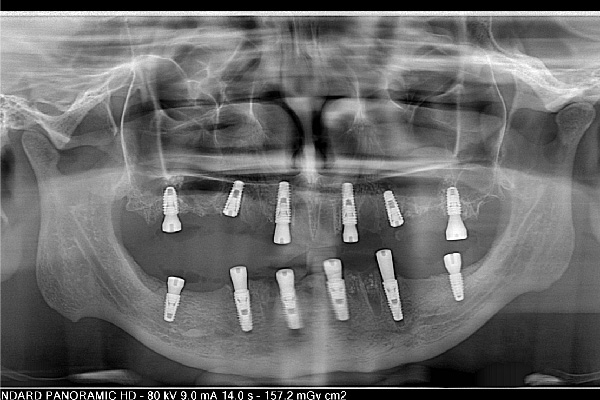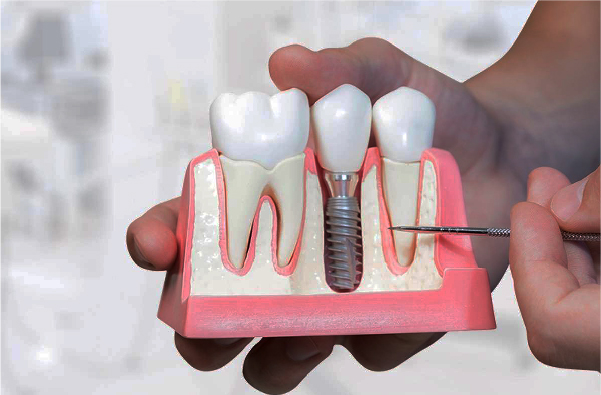6 The Most Frequently Asked Questions to the Implantologist

Dental implantation is widely used method for treating many dental problems, and a dental implant is a special metal structure that is placed in the jawbone as a replacement for the tooth root. This is the most effective method for restoring lost teeth, providing strong attachment and support for the artificial tooth. The process of dental implantation involves a surgical procedure where the implantologist inserts metal implants to create a strong foundation. When it comes to dental implants, choosing the best dental implant system and the best dental implants is crucial for ensuring optimal results and long-term success. Before conducting the implantation of teeth, a series of examinations must be performed to assess the condition of the oral cavity and jawbone. This includes X-rays, computer tomography (CT), that help determine the quantity and quality of the bone tissue, as well as identify possible obstacles for successful implantation. Additionally, a patient's examination and medical history analysis are carried out to identify potential contraindications and develop an individual treatment plan using the best dental implant and plastic dental implant techniques. Dental clinic implants are used for the best recovery of missing teeth, but they may cause some discomfort and usually are performed under local anesthesia to minimize the patient's pain. The process of inserting tooth implants into the jawbone may be accompanied by slight discomfort and a feeling of pressure. However, most patients note that this process is more tolerable than expected. 4. Are there contraindications of implantation process? So contraindications may include: These factors should be taken into account by the implantologist when deciding on the appropriateness of performing tooth implantation for a specific patient. By the recommendations of implantologists this may include: Regular oral hygiene Maintaining the cleanliness of teeth and gums using a soft toothbrush and dental floss for cleaning thoroughly. Regular visits to the dentist It is recommended to visit the dentist for professional cleaning and examination of the oral cavity at least twice a year. Avoiding harmful habits Smoking and excessive alcohol consumption can have a negative impact on the condition of implants, so they should be avoided. Proper nutrition Healthy eating promotes dental and gum health, which also positively affects the condition of implants. Avoiding trauma and pressure Patients are advised to avoid from pressure on dental implants and to avoid traumatizing the implantation area. Maintaining a healthy lifestyle Leading a healthy lifestyle, including regular physical exercise and healthy diet, promotes the good condition of implants and of the total body. Tooth implants have many advantages such as: Implants allow patients to recover lost teeth, improving their chewing abilities and ensuring comfortable and efficient digestion with the best dental implant system. Increased confidence Implants restore the aesthetics of the smile, enabling patients to feel more confident in communicating with others and in everyday situations. Prevention of facial deformities Tooth loss can lead to facial deformities due to the loss of bone volume. Installing implants helps maintain the natural shape of the face. Enhanced comfort Implants provide stability and comfort without causing discomfort or unpleasant sensations, unlike some other types of dental prosthetics. Implants help preserve healthy gum and bone structure by stimulating natural bone growth processes. For more and other questions You can visit to our dental clinic in Yerevan and our pleasant specialists will provide Your teeth treatment.1. What is tooth implant?
2. Which observations do patients need before implantation?
3. Is implantation painful?
5. Which care do patients need for the different types of tooth implants?
6. How do implants improve patient’s quality of life?
Restoration of functionality
Maintenance of gum and bone health







